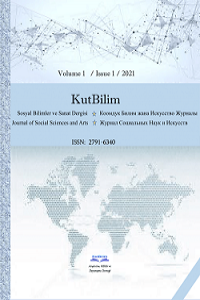Abstract
References
- Kvinikadze Z., Davitia Z., & Kvinikadze L. (2010). Short course in ecology, http://dspace.nplg.gov.ge/bitstream/1234/8441/1/Ekologiis_Mokle-kursi.pdf
- Malthusian Theory of Population (2011). http://cgge.aag.org/PopulationandNatural Resources1e/CF_PopNatRes_Jan10/CF_P opNatRes_Jan108.html
- McLamb E. (2011). The Ecological Impact of the Industrial Revolution, http://www.ecology.com/2011/09/18/ecological-impact-industrial-revolution/
- Mohsin Hasnan Ahmad, Usman Azhar, Syed Ashraf Wasti & Zeshan Inam (2005). Interaction between Population and Environmental Degradation, The Pakistan Development Review, Part II, pp. 1135–1150, https://core.ac.uk/download/pdf/7203238.pdf
- Overpopulation Solutions (2013). http://www.everythingconnects.org/overpopulation-solutions.html
- Population and environment: a global challenge (2015). http://www.nova.org.au/earth-environment/population-environment
- Thomas Malthus (1798) An Essay on the Principle of Population, London: Printed for J. Johnson, in St. Paul’s Church-Yard. http://www.esp.org/books/malthus/population/ malthus.pdf
- Top News (2011). China's 'one-child policy' to stay, http://www.upi.com/Top_News/World-News/2011/10/30/Chinas-one-child-policy- to-stay/UPI-49251319986867/?st_rec= 73301320046200
- TV Imedi (2016). "Griffith Secret" - "Lost Ice", https://www.youtube.com/watch?v=7wU5sKn-uXs
- United Nations (2017). World population projected to reach 9.8 billion in 2050, and 11.2 billion in 2100, https://www.un.org/development/desa/en/news/population/world-population- prospects-2017.html
Abstract
As the world population continues to grow, humankind is expected to experience more social, economic and environmental problems. The global population keeps growing at a very rapid pace. According to the statistical data in 2030 the global population will reach 8.4 billion and in 2050 the total size of the population will be 9.6 billion. As a result of this phenomenal growth of population, the consumption of resources such as land, food, water, air, fossil fuels and minerals has grown rapidly over the last decades. More consumption means more waste, more water pollutants, toxic materials and greenhouse gasses. Unregulated population growth will cause the environmental degradation and ecological disaster in the future. The research question of this paper is: is there a causal link between the population growth and environmental degradation? The main goal of this article is to find out if the unchecked population growth causes damage to our environment.
Keywords
Uncecked polpulation growth enviromental degredation overpopulation ecological problems industrial growth
References
- Kvinikadze Z., Davitia Z., & Kvinikadze L. (2010). Short course in ecology, http://dspace.nplg.gov.ge/bitstream/1234/8441/1/Ekologiis_Mokle-kursi.pdf
- Malthusian Theory of Population (2011). http://cgge.aag.org/PopulationandNatural Resources1e/CF_PopNatRes_Jan10/CF_P opNatRes_Jan108.html
- McLamb E. (2011). The Ecological Impact of the Industrial Revolution, http://www.ecology.com/2011/09/18/ecological-impact-industrial-revolution/
- Mohsin Hasnan Ahmad, Usman Azhar, Syed Ashraf Wasti & Zeshan Inam (2005). Interaction between Population and Environmental Degradation, The Pakistan Development Review, Part II, pp. 1135–1150, https://core.ac.uk/download/pdf/7203238.pdf
- Overpopulation Solutions (2013). http://www.everythingconnects.org/overpopulation-solutions.html
- Population and environment: a global challenge (2015). http://www.nova.org.au/earth-environment/population-environment
- Thomas Malthus (1798) An Essay on the Principle of Population, London: Printed for J. Johnson, in St. Paul’s Church-Yard. http://www.esp.org/books/malthus/population/ malthus.pdf
- Top News (2011). China's 'one-child policy' to stay, http://www.upi.com/Top_News/World-News/2011/10/30/Chinas-one-child-policy- to-stay/UPI-49251319986867/?st_rec= 73301320046200
- TV Imedi (2016). "Griffith Secret" - "Lost Ice", https://www.youtube.com/watch?v=7wU5sKn-uXs
- United Nations (2017). World population projected to reach 9.8 billion in 2050, and 11.2 billion in 2100, https://www.un.org/development/desa/en/news/population/world-population- prospects-2017.html
Details
| Primary Language | English |
|---|---|
| Journal Section | Research Articles |
| Authors | |
| Publication Date | June 1, 2021 |
| Submission Date | May 3, 2021 |
| Published in Issue | Year 2021 Volume: 1 Issue: 1 |

